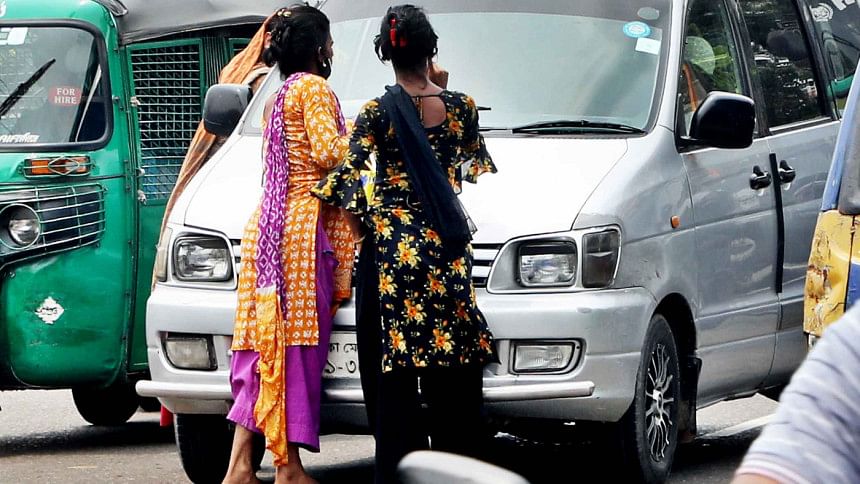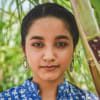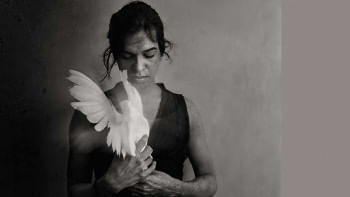The twisted plight of Bangladeshi transgender community: A critical error in policymaking

On May 26, during a meeting at Jatiya Sangsad Bhaban, the Parliamentary Standing Committee on the Ministry of Social Welfare recommended that measures be taken to prevent "harassment" by third gender people on the streets, despite the government providing various facilities.
A press release issued by the Parliament Secretariat said the committee had recommended taking necessary steps after conducting a medical examination to identify "real" third gender individuals, issue an ID card, and hold a meeting with the home ministry to prevent "harassment."
This development leaves us with two questions: 1) If these "facilities" are really that accessible, why aren't we seeing more transgender people in job roles? 2) Even if they are accessible, why aren't more transgender people getting their national verification as well as these "facilities"?
This is where the paradox of recognising the transgender community lies.
To unravel these answers, let's start with the first issue – the policy itself. On January 26, 2014, the social welfare ministry announced the recognition of hijras in its gazette with a single sentence: "The Government of Bangladesh has recognised the hijra community of Bangladesh as a hijra sex." However, the policy had a fundamental loophole.
When you think of the term "hijra," you probably imagine it's a person who, because of their biology, is neither male nor female, or is both. Most think that they are "intersex," meaning a person is born with reproductive or sexual anatomy that doesn't fit the definition of "female" or "male."
But in Bangladesh, "hijra" is used as an umbrella term to designate a group of individuals that may include intersex individuals, castrated men, and transgender women (assigned male at birth). This group lives as a community or "family" under the guidance of a community leader or "guru." Therefore, hijra is not a gender, rather a community. This is where the policy fails, since it doesn't clearly define the diverse gender categories under the term "hijra." Individuals with different gender identities, such as transgender women and transgender men, are excluded because they are not part of the hijra culture – yet they remain vulnerable to societal shame, discrimination, and violence.
As a result, various government agencies have been allowed to carry out identification processes in the manner they saw fit. In addition to "male" and "female," national ID cards in Bangladesh now have a "hijra" category. Other than "male" and "female," the Bangladesh passport features a third category: "other." "Third gender" is now an option on several government forms (such as those for opening a bank account at state-run institutions). Although this may seem like progress to many, one may miss out on how unaware these government institutions are about sexual orientation and gender identity. This, in turn, entrenches many deep-rooted misconceptions about the term "hijra" among common people.
But an even more horrendous consequence of this lack of awareness was found during physical examinations carried out pursuant to a memorandum issued by the health ministry requiring "authentic hijras to be identified through medical check-ups." A report by Human Rights Watch (HRW) in 2016 found that after the social welfare ministry invited hijras to apply for government employment in December 2014, many trans individuals said they had been harassed and asked inappropriate questions about their gender identity and sexuality.
Physicians instructed non-medical hospital employees, such as custodians, to touch the hijras' genitals as groups of staff and other patients watched and heckled – sometimes in private rooms, sometimes in public spaces – during these so-called "examinations." Some of the hijras were told to return several times over the course of several weeks to undergo additional testing. Not only that, private photographs of 12 trans women (who passed the interview and were instructed to take the medical exam) were released in print and online platforms, claiming that these "hijras" were really men who were committing fraud to attain government jobs and privileges.
These photos sparked further ostracisation and harassment of the hijras, compromising their means to earn a living. Many engaged in sex work reported that they had lost clients, while others altered their appearances to seem more masculine in the hope of getting jobs. And when they altered their appearances, they were cast out of their own communities – leaving these trans individuals with no support system, or a roof over their heads as most of them had been turned away from their biological families.
This precedence of abuse of privacy and harassment resulted in members of the hijra community shying away from getting their national verification IDs as the citizens of Bangladesh, barring them from opening bank accounts, having passports and, most importantly, getting jobs. As a result, most trans individuals and members of the hijra community, despite wanting to have access to better opportunities, resort to begging to survive. Some even employ violent language and persistence to meet their daily income cap.
The social welfare ministry has implemented numerous social inclusion programmes for hijras as part of its social safety net programme, which includes a monthly allowance for people aged 50 years and up, scholarships for "hijra children," and skills and capacity development training to engage them in income-generating enterprises. According to home ministry data, among a total of 13,000 members of the hijra community, 1,920 members have received training this fiscal year. Only those aged 50 years and above are being given an allowance of Tk 600 per month.
But members of the hijra community claim that they have hardly ever received this allowance or the skills training from government agencies. It begets the question: Where are all the funds allotted for these initiatives going?
As the social welfare ministry scrounges for a way to keep members of the hijra community off the streets, what they don't realise is that they don't have to go too far to find it. The solution lies in fixing the policy and building gender consciousness within the government institutions that are meant to cater to this segment of the citizenry. Without that, social awareness campaigns would be futile. It also gets easier for the society at large to accept them as fellow members when ordinary people see them in roles beyond just beggars and sex workers.
Bangladesh has performed a progressive duty by recognising the members of hijra community as citizens, but that still remains on paper. Without creating proper channels for them to access opportunities like other citizens, this recognition is nothing more than a facade.
Nazifa Raidah is a sub-editor at The Daily Star.

 For all latest news, follow The Daily Star's Google News channel.
For all latest news, follow The Daily Star's Google News channel. 








Comments